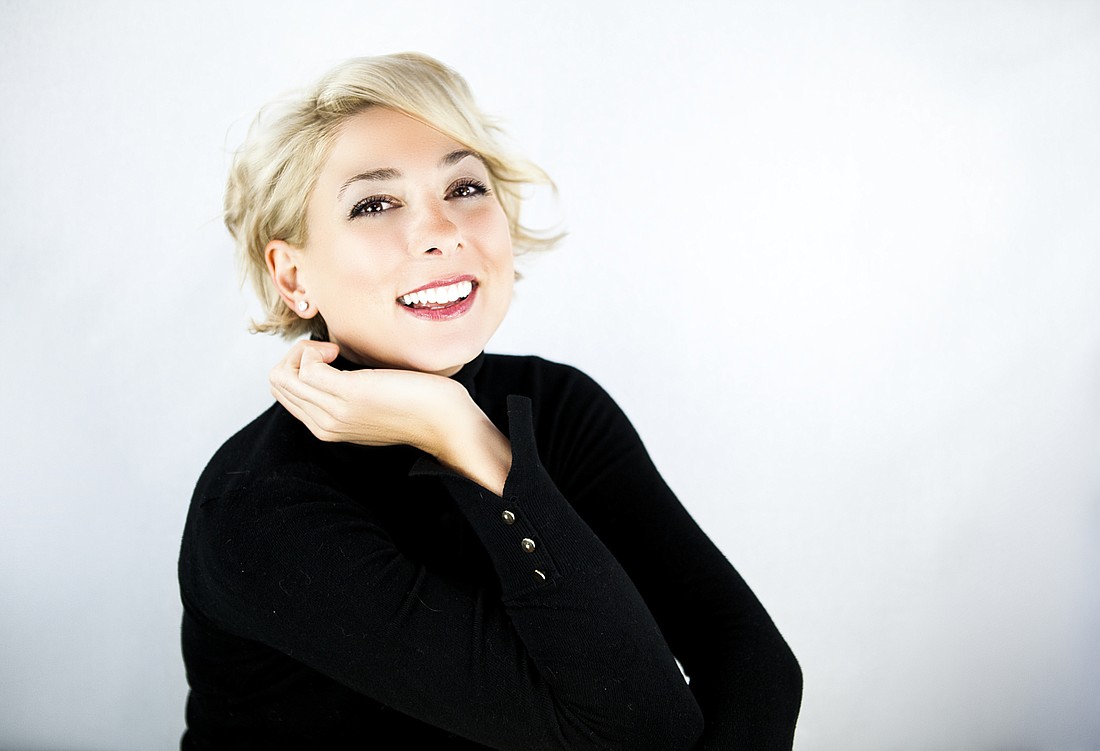- April 24, 2024
-
-
Loading

Loading

Music has the ability to bring people of all backgrounds together.
And it’s with this in mind that the good folks at Opera Orlando are looking to draw in both old and new listeners with their final upcoming recital for the annual Opera on Park Summer Concert Series at 2 p.m. Aug. 12.
The organization’s previous two performances by Alex Mansoori and Laura Leon were solid successes, said Opera Orlando’s Executive and Artistic Director Gabriel Preisser, and the upcoming show featuring soprano Suzanne Kantorski promises to be no different.
“Suzanne has definitely established herself in the opera industry, and some of our opera fans here heard her up in New York — they said, ‘We have to bring her down to Orlando,’” Preisser said. “So she came down and did a fundraiser for us, and everyone fell in love with her then.”
Originally started in 2009, the series has become an annual favorite of local opera enthusiasts, because it gives them a more intimate performance than what is usually seen at larger, more theatrical performances.
Held at the University Club of Winter Park, there will be no grand stage filled with props, background or costumes. Instead, Kantorski will take to the front of the room, alongside pianist Robin Stamper, and perform a selection of songs of her choosing — which will feature pieces from upcoming shows that Opera Orlando will produce.
This style of performance allows visitors to really take in the talent that Kantorski and others have to offer, said Creative Director Grant Preisser.
“Ultimately, what we want them to take away from these recitals is just the power and the beauty of the voice un-amplified — I think that’s what continues to separate opera from a lot of live music,” Grant said. “We don’t use microphones — the voice and what is produced is the artist alone doing that.”
And although some may think that a stripped down recital would be much easier to perform, it actually can be the opposite, Kantorski said. Although she loves recitals and their more one-on-one nature, the simplistic aspect of the performance means there are no others to give directions and no visual means to use as cues.
“When you’re curating a recital, it’s a totally different ball game, because the only wall that now exists between you and the audience is right in front of you — there is nothing else there,” Kantorski said. “It’s a very vulnerable position for a lot of artists, and in fact I know many who won’t do recital work because it’s really stressful.”
Kantorski has performed as an opera singer in productions all over the world. And although she has performed on some of the biggest stages, Kantorski’s life as an opera singer seemingly came from out of nowhere.
A small-town girl from Danby, Vermont — with a population of about 1,000 — opera wasn’t really something she discovered through her blue-collar family. It also wasn’t her chosen form of expression.
“I loved music from a very young age, but I never thought about it as a career — I wanted to be a dancer, to be honest,” Kantorski said. “My introduction to classical music was my mother enrolling me into dance classes and ballet, and I was so inspired by the movement of dance.”
Unfortunately, Kantorski suffered an injury after a car accident that derailed her dancing career early. That’s when she made the switch to singing.
From there, Kantorski dived head-first into her art. She graduated from the Manhattan School of Music in New York and then performed and taught voice classes at the Crane School of Music in Potsdam, New York.
Despite the years of constant intensive practicing and the general hardships that come from dedicating your life to the art, Kantorski said there was nothing she’d rather do than sing — because she believes it connects herself to others on a special, pure level.
“We listen right now in a digital age to everything on a computer, on a handheld device, on a speaker — something that has been amplified, something that has been modified or tampered before it reaches the consumer,” Kantorski said. “This art form is one of the last — or only existing now — art forms where this music from my body is directly connecting to another human being on the same frequency.”
In addition to Kantorski’s performance this Sunday, she also will perform in March 2019 in the double bill of Pagliacci and Pucinella produced by Opera Orlando.